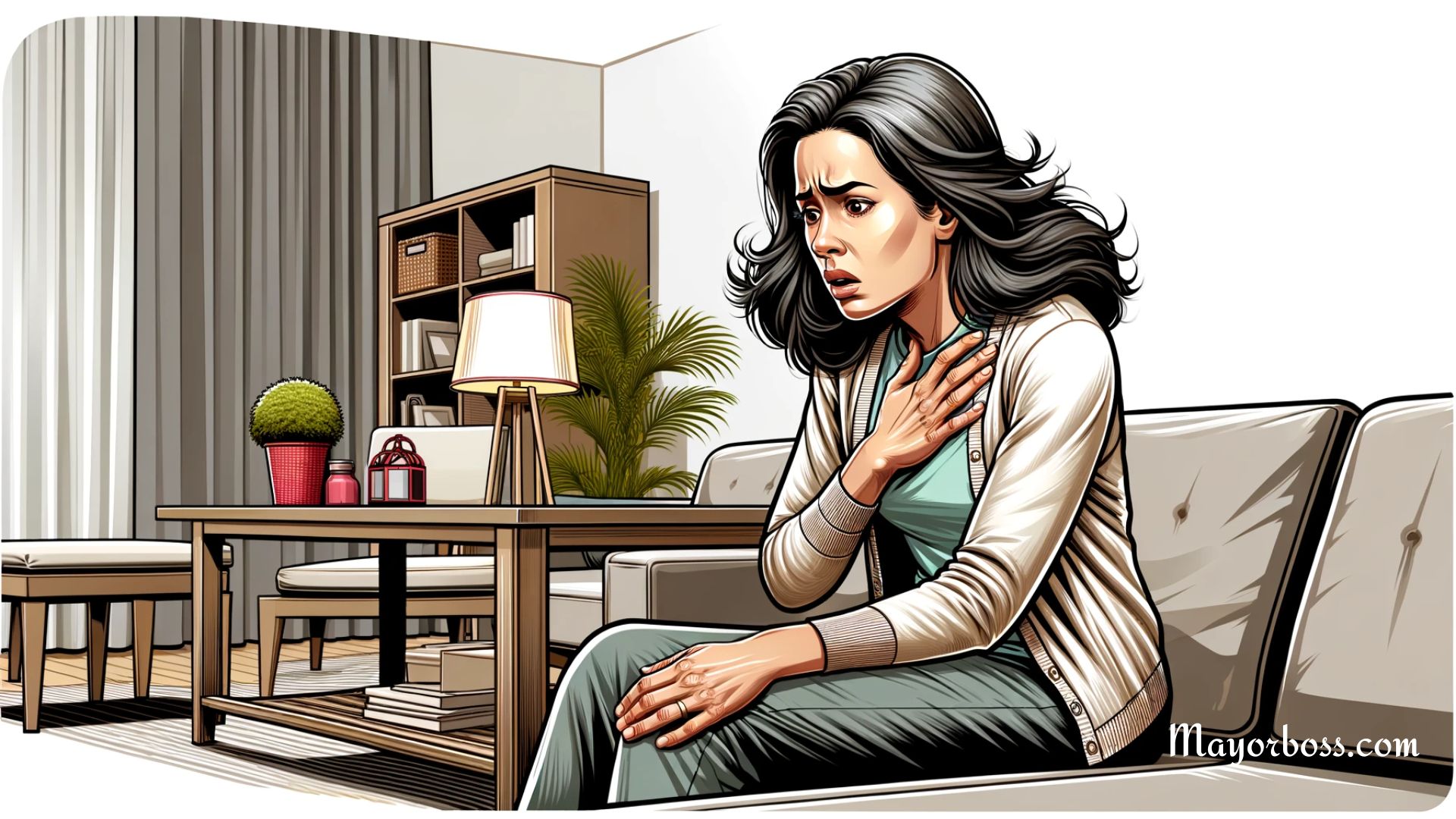The Unexpected Reason You’re Having Shortness of Breath
Shortness of breath, also known as dyspnea, is a common symptom experienced by individuals of all ages and backgrounds. While its manifestation can be attributed to various factors like a stuffy nose or intense exercise, some causes may seem quite surprising. This article delves into the less commonly known contributors to dyspnea, offering a deeper understanding of its potential impact.
The Surprising Reason You’re Having Difficulty Breathing
While conditions like asthma, COPD, heart failure, heart attack, pneumonia, and anxiety readily come to mind when considering dyspnea, there exists a hidden spectrum of contributing factors. These often overlooked culprits, though less prevalent, deserve careful consideration.
1. Anemia: This deficiency in red blood cells, responsible for oxygen transport, can lead to a state of oxygen deprivation, resulting in dyspnea, fatigue, and other symptoms.
2. Gastroesophageal Reflux Disease (GERD): The backflow of stomach acid into the esophagus, a hallmark of GERD, not only causes heartburn but can also irritate the lining, triggering shortness of breath alongside other discomfort.
3. Thyroid Dysfunction: An overactive or underactive thyroid gland can disrupt the body’s metabolic processes, leading to dyspnea, among other symptoms.
4. Acid Reflux: Similar to GERD, acid reflux involves the upward movement of stomach acid, causing irritation and discomfort. In some individuals, this can manifest as shortness of breath, adding another layer to the symptom profile.
5. Hiatal Hernia: When the upper portion of the stomach pushes through the diaphragm, known as a hiatal hernia, various issues can arise, including dyspnea, heartburn, and chest pain.
6. Allergies: Allergic reactions to environmental triggers like pollen, dust mites, and mold can cause inflammation in the airways, thus leading to shortness of breath, wheezing, and other respiratory distress.
7. Mold Exposure: Mold thrives in damp environments and can typically discharge spores that cause allergic reactions upon inhalation. These reactions can make you feel short of breath, cough, and have other respiratory symptoms.
8. Sleep Apnea: This condition characterized by pauses in breathing during sleep can disrupt the oxygen supply to the body, leading to daytime fatigue, sleep deprivation, and, in some cases, dyspnea.
9. Panic Attacks: Sudden episodes of intense fear and anxiety can trigger a cascade of physiological responses, including dyspnea, chest pain, and dizziness.
10. Medication Side Effects: Certain medications can list dyspnea as a potential side effect. It’s crucial to be aware of the potential side effects of any medication and consult with a healthcare professional if you experience any concerns.

Minimizing Shortness of Breath: When to Seek Help
If you are experiencing persistent or recurring episodes of shortness of breath, it is crucial to seek professional medical advice. A timely diagnosis can help identify the underlying cause and enable the implementation of appropriate treatment strategies.
While medical intervention is paramount, there are self-management strategies that can offer relief and improve overall well-being:
- Maintaining an upright posture: Sitting or standing upright can help open the airways and facilitate easier breathing.
- Loosening constricting clothing: Tight clothing can restrict breathing and exacerbate dyspnea. Opting for loose-fitting garments can provide comfort and improve airflow.
- Practicing deep breathing exercises: Controlled, deep breaths can promote relaxation and improve oxygen intake, offering relief from shortness of breath.
- Seeking emotional support: Anxiety can worsen dyspnea. Talking to a trusted friend, family member, or therapist can provide emotional support and reduce stress levels.
- Utilizing prescribed inhalers: For individuals diagnosed with conditions like asthma, adhering to prescribed medications, such as inhalers, can significantly improve lung function and control episodes of dyspnea.
